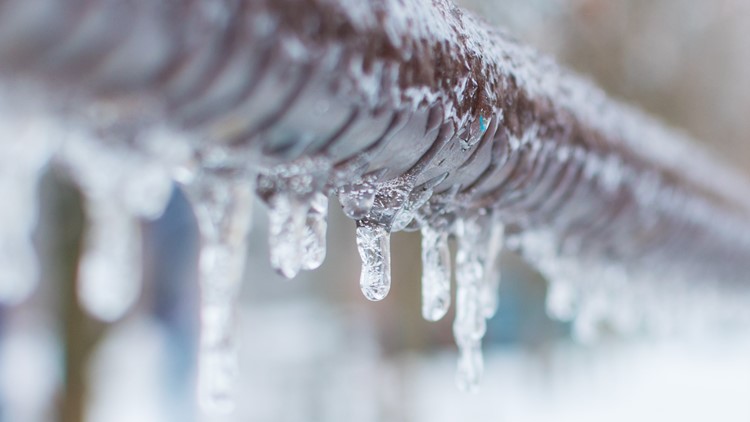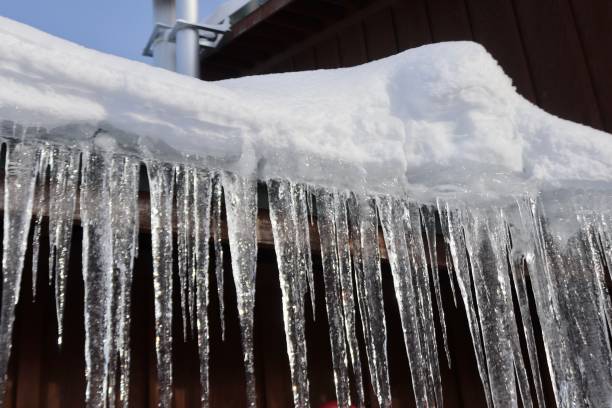Important Advice to Protect Against Frozen Plumbing in Winter
Important Advice to Protect Against Frozen Plumbing in Winter
Blog Article
This article which follows in relation to How To Avoid Freezing Pipes is exceedingly captivating. Read it yourself and figure out what you think of it.

Cold weather can damage your pipes, especially by freezing pipelines. Here's just how to avoid it from taking place and what to do if it does.
Introduction
As temperatures decline, the threat of frozen pipes boosts, possibly bring about expensive repairs and water damages. Recognizing just how to prevent icy pipes is vital for homeowners in chilly climates.
Prevention Tips
Protecting vulnerable pipelines
Wrap pipes in insulation sleeves or utilize warm tape to shield them from freezing temperatures. Concentrate on pipes in unheated or external areas of the home.
Heating strategies
Keep indoor spaces properly warmed, particularly locations with pipes. Open cupboard doors to enable warm air to circulate around pipelines under sinks.
Just how to determine frozen pipelines
Look for decreased water flow from taps, uncommon odors or sounds from pipes, and noticeable frost on exposed pipes.
Long-Term Solutions
Architectural adjustments
Think about rerouting pipes away from exterior walls or unheated areas. Add extra insulation to attics, cellars, and crawl spaces.
Upgrading insulation
Invest in premium insulation for pipelines, attic rooms, and walls. Appropriate insulation helps preserve consistent temperature levels and lowers the danger of frozen pipelines.
Protecting Outside Pipes
Garden pipes and exterior faucets
Detach and drain yard hose pipes prior to winter. Install frost-proof faucets or cover outdoor faucets with shielded caps.
Understanding Frozen Pipelines
What triggers pipes to freeze?
Pipes freeze when exposed to temperature levels listed below 32 ° F (0 ° C) for prolonged periods. As water inside the pipelines ices up, it increases, putting pressure on the pipeline walls and possibly creating them to rupture.
Risks and problems
Icy pipes can bring about water system disturbances, building damage, and costly fixings. Burst pipes can flood homes and cause considerable structural damage.
Indications of Frozen Pipes
Identifying frozen pipes early can stop them from rupturing.
What to Do If Your Pipes Freeze
Immediate activities to take
If you presume frozen pipelines, maintain taps open to eliminate pressure as the ice melts. Use a hairdryer or towels soaked in hot water to thaw pipes slowly.
Conclusion
Stopping icy pipelines needs aggressive actions and fast actions. By recognizing the causes, signs, and safety nets, home owners can secure their plumbing during winter.
Helpful Tips to Prevent Frozen Pipes this Winter
UNDERSTANDING THE BASICS: WHY PIPES FREEZE AND WHY IT’S A PROBLEM
Water freezing inside pipes is common during the winter months, but understanding why pipes freeze, and the potential problems it can cause is crucial in preventing such incidents. This section will delve into the basics of why pipes freeze and the associated problems that may arise.
THE SCIENCE BEHIND FROZEN PIPES
When water reaches freezing temperatures, it undergoes a physical transformation and solidifies into ice. This expansion of water as it freezes is the primary reason pipes can burst. As the water inside the pipe freezes, it expands, creating immense pressure on the walls. If the pressure becomes too great, the pipe can crack or rupture, leading to leaks and water damage.
FACTORS THAT CONTRIBUTE TO PIPE FREEZING
Low Temperatures: Extremely cold weather, especially below freezing, increases the risk of pipes freezing. Uninsulated or Poorly Insulated Pipes: Pipes located in unheated areas, such as basements, crawl spaces, or attics, are more prone to freezing. Insufficient insulation or lack of insulation altogether exacerbates the problem. Exterior Wall Exposure: Pipes running along exterior walls are susceptible to freezing as they encounter colder temperatures outside. Lack of Heating or Temperature Regulation: Inadequate heating or inconsistent temperature control in your home can contribute to frozen pipes. PROBLEMS CAUSED BY FROZEN PIPES
- Pipe Bursting: As mentioned earlier, the expansion of water as it freezes can cause pipes to burst, resulting in significant water damage.
- Water Damage: When pipes burst, it can lead to flooding and water damage to your property, including walls, ceilings, flooring, and personal belongings.
- Structural Damage: Prolonged exposure to water from burst pipes can compromise the structural integrity of your home, leading to costly repairs.
- Mold and Mildew Growth: Excess moisture from water damage can create a favorable environment for mold and mildew growth, posing health risks to occupants.
- Disrupted Water Supply: Frozen pipes can also result in a complete or partial loss of water supply until the issue is resolved.
WHY CERTAIN PIPES ARE MORE PRONE TO FREEZING
- Location: Pipes located in unheated or poorly insulated areas, such as basements, crawl spaces, attics, or exterior walls, are at higher risk of freezing.
- Exterior Pipes: Outdoor pipes, such as those used for irrigation or exposed plumbing, are particularly vulnerable to freezing as they are directly exposed to the elements.
- Supply Lines: Pipes that carry water from the main water supply into your home, including the main water line, are critical to protect as freezing in these lines can affect your entire plumbing system.
- Underground Pipes: Pipes buried underground, such as those connected to sprinkler systems or outdoor faucets, can be susceptible to freezing if not properly insulated.
https://busybusy.com/blog/helpful-tips-to-prevent-frozen-pipes-this-winter/

I discovered that piece of writing on Helpful Tips to Prevent Frozen Pipes this Winter while perusing the internet. In case you enjoyed our page if you please do not forget to share it. Thank you for going through it.
Rates Report this page